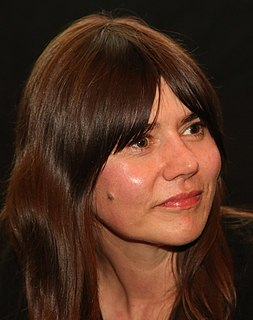A Quote by David Nicholls
An adaptation leads the cinema-goer to the original to find out what they're missing and if they already know the book, it can still illuminate a theme, a character, an idea.
Related Quotes
Shane Salerno and I adapted my book Savages together, and I learned a lot about adaptation. I think it's an extremely difficult thing to do; adaptation might even be more difficult than writing an original screenplay. It's so much a matter of choices, making choices of what to leave in. It was an education.
I've had stuff of mine adapted by other people, so I've come to the conclusion that a movie is a different form from a novel and there is no such thing as a true adaptation. You have to adapt to this other thing and do it right. But that voice of the original should somehow still be there, and the original intent should still be there. So if the original writer saw the movie, the writer would say, "Well, that's not what I wrote, but that's what I meant." And if you can do that, I think you've done your job as a screenwriter.
I wanted to make a film about anorexia. I thought about it for a long time, but then gave up on this idea as I felt that this theme would be so hermetic and closed that it would not reach an audience. However, the plot about the character of Olga and the idea that a body has a lot of different meanings were still present in my mind.
If I'm alone at home, I get increasingly restless, bothered by the idea that I'm missing some crucial encounter out there somewhere. But if I'm left by myself in someone else's place, I often find myself a nice sense of peace engulfing me. I love sinking into an unfamiliar sofa with whatever book happens to be lying nearby.
I'm trying to find these rare moments where you feel completely illuminated. Facts never illuminate you. The phone directory of Manhattan doesn't illuminate you, although it has factually correct entries, millions of them. But these rare moments of illumination that you find when you read a great poem, you instantly know. You instantly feel this spark of illumination. You are almost stepping outside of yourself and you see something sublime.







































